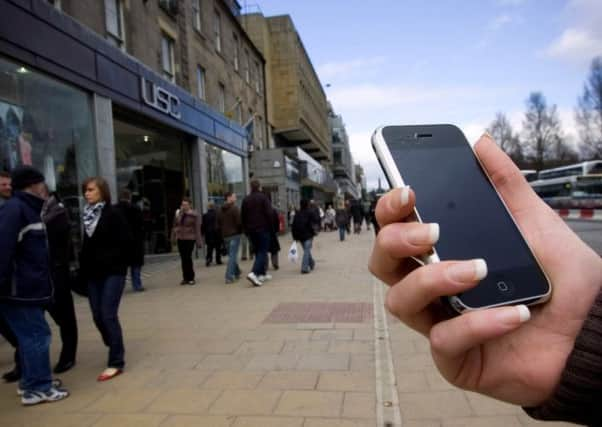Jane Bradley: Hang up on costly phone unlocking


To suspicious stares from groups of unshaven men hanging around the streets, I’d been wandering, lost for hours. I eventually located what looked like it might be the correct door and pushed it. Nothing. It was locked. To the right was a bell. I rang it and waited. Nothing. After a few minutes, a dark-browed man pushed his head around the door.
“What do you want?”
I muttered a few words, hoping they would magically grant me entry. He grunted and considered me for a few seconds. He finally stepped aside and let me in. I explained the service I required and handed over a fistful of grubby banknotes.
Advertisement
Hide AdAdvertisement
Hide AdThankfully, it wasn’t the residence of Vera Drake. It was a mobile phone shop, albeit a dodgy one. What was about to be butchered wasn’t a person, but a handset. In an attempt to save cash, I had decided to take my first step into the murky world of phone unlocking.
This, to be fair, took place in eastern Europe in 2002, when I wanted to open up my UK Nokia handset to use a foreign Sim card. But the experience in Britain – and I have tried it many times – is not dissimilar.
For those who’ve never tried to dodge the exorbitant fees charged by mobile phone companies to use a phone which you have already paid for probably twice over through a contract, this is how it works:
A phone is usually locked to a certain network. If, when the contract is up, you want to swap to a different provider on a Sim-only basis – or, more likely, give your handset to a loved one whose own phone has conked out halfway through a thousand-year tied-in deal – you almost certainly can’t without a struggle.
Most companies will unlock a phone, but charge a high fee to do so – up to £20.99, depending on your provider – and some take up to 28 days to perform the process. By contrast, the backstreet practitioners do so pretty much on the spot for a few quid.
Mobile phone companies have us over a barrel. A report out this week from Ofcom found that Three is the only provider which does not routinely lock mobile phones, allowing the user to freely use it with another company’s Sim whenever they like.
The refusal by other telecoms companies to do this prevents customers from easily switching companies when contracts are up – a restrictive practice the likes of which has been lambasted in other industries in recent years. Bizarrely, mobile phone companies seem to have got away with it.
And few take the backstreet route. Telecoms expert Ernest Doku of uSwitch, commenting on the story, described the “stigma of [unlocking] being an illegal or shady practice”. He’s right.
Advertisement
Hide AdAdvertisement
Hide AdWherever you are in Europe, the shops which carry out this invasive process are always a bit dingy. Confusing. Daunting. With a distinct lack of corporate reassurance. You’re never quite sure that when you return a few hours later to pick up your beloved phone, that the entire establishment won’t have evaporated into thin air, doing a moonlight flit with your lifeline to the world.
So far, that’s never happened to me, but you never know.
There is, of course, a problem with making phones easier to unlock. Box-breaking – when handsets are bought up in large quantities, unlocked and re-sold for profit – is a real problem for mobile operators, preventing them from making any cash from the Sim cards they come with. Apparently those friendly mobile phone providers often sell handsets at a loss and need the cash from the Sims to survive. So you can see why they’re not keen on the idea.
That aside, they cannot be the only industry immune to the need to open up to competition. It is already daunting enough to have to deal with the PAC codes or MAC codes or whatever they’re called to transfer an existing number, without having to jump through expensive hoops to unlock the handset too.
Consumer group Which? has launched a campaign to make unlocking free. I’m with them on that. I can see one group of people who won’t be so delighted, though. The independent traders.
Next, there’ll be a campaign to save the backstreet dodgy mobile phone shops. If we can find them.